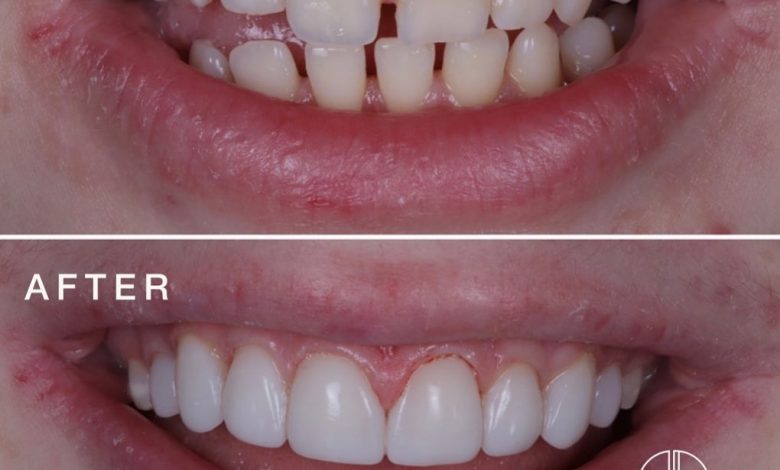The Complete Guide To Dental Bonding Cost And Why It Is The Best Option For You

Introduction:
Dental bonding is a type of cosmetic dentistry that can improve the look of your smile. It is often used to repair chipped, cracked, or discolored teeth. It can also be used to close gaps between teeth or to make teeth look longer. Bonding is usually done in one visit to the dentist, and it does not require anesthesia.
The procedure is relatively painless, and it is an affordable option for those who want to improve their smile. In this guide, we will discuss the Dental Bonding Cost and why it is the best option for you. We will also provide some tips on how to find the right dentist for the procedure.
What is Dental Bonding?
Dental bonding is a treatment used to repair cracked, chipped, or discolored teeth. It can also be used to close gaps between teeth or cover up stains. Bonding is usually done in one visit to the dentist and does not require anesthesia.
Bonding involves using a tooth-colored resin material that is applied to the tooth and then hardened with a special light. The resin is matched to the color of your natural teeth so it looks like a seamless repair. Once the resin has hardened, the dentist will shape and polish it so it looks natural.
The entire process takes about 30 minutes to an hour per tooth. Bonding can last for several years before it needs to be touched up or replaced.
What Are The Benefits of Dental Bonding?
There are many benefits of dental bonding. One of the most obvious benefits is that it can give you a much needed confidence boost. If you have ever felt self-conscious about your smile, then dental bonding can help you to feel more confident about the way that you look.
Another great benefit of dental bonding is that it can help to improve the function of your teeth. If you have chipped or cracked teeth, then dental bonding can help to make them stronger and more durable. This means that they will be less likely to break in the future and will be able to withstand more wear and tear.
Finally, another benefit of dental bonding is that it can help to improve the appearance of your teeth. If your teeth are stained or discoloured, then dental bonding can help to brighten them up and make them look their best.
How Much Does Dental Bonding Cost?
The cost of dental bonding varies depending on the size and extent of the procedure. However, in general, dental bonding can cost anywhere from $300 to $1,000 per tooth. For a more comprehensive guide to dental bonding costs, please see our complete guide below.
Is Dental Bonding the Best Option For Me?
If you are considering getting dental bonding, then you probably have a lot of questions. What is dental bonding? How much does it cost? Is it the best option for me?
Dental bonding is a procedure where a tooth-colored resin is attached to your teeth. The resin can be used to improve the appearance of your teeth, or to protect them from further damage.
The cost of dental bonding depends on the size and number of teeth that you need to have bonded. Most insurance plans will cover at least part of the cost.
There are many benefits of dental bonding. It can give you a beautiful smile, and it can also protect your teeth from further damage. If you are considering getting dental bonding, then talk to your dentist about whether or not it is the best option for you.
How Can I Get Dental Bonding?
Dental bonding is a great way to improve the appearance of your smile. It can be used to correct a number of different cosmetic dental problems, including gaps between teeth, chipped or cracked teeth, and misshapen teeth. Bonding is also a good option for people who have sensitive teeth and gums.
The dental bonding process is relatively simple. First, your dentist will select the shade of bonding material that best matches your natural tooth color. The bonding material is then applied to your tooth using a small applicator.
Once the bonding material has been applied, your dentist will use a special light to harden it. Once the bonding material has hardened, your dentist will shape and polish it to match the surrounding teeth.
The entire dental bonding process usually takes less than an hour to complete. In most cases, you will not need anesthesia for dental bonding. However, if you have sensitive teeth or gums, your dentist may recommend that you have a local anesthetic before the procedure.
Dental bonding can last for many years with proper care. It is important to avoid chewing on hard objects and to brush and floss regularly to keep your bonded teeth clean and healthy.

The Different Types of Dental Bonding:
There are three main types of dental bonding: direct, semi-direct, and indirect. Direct dental bonding is the most common type and involves bonding the tooth directly to the composite resin. Semi-direct bonding is similar to direct bonding but involves first placing a thin layer of composite resin on the tooth before bonding it to the tooth.
Indirect dental bonding is when the composite resin is bonded to a metal or porcelain veneer which is then bonded to the tooth. You can check dental bonding before and after pictures .
The type of dental bonding that is best for you will depend on the extent of damage to your teeth and your budget. If you have minor damage to your teeth, direct dental bonding may be all that is needed. However, if you have more extensive damage, such as chips, cracks, or gaps, semi-direct or indirect dental bonding may be necessary.
Dental bonding is an affordable way to repair damaged teeth and improve your smile. It is also less invasive than other options such as veneers or crowns. If you are considering dental bonding, be sure to consult with a qualified dentist to determine which type of dental bonds best suits your needs.
How to Choose the Right Dentist for Dental Bonding?
When it comes to choosing the right dentist for dental bonding, there are a few things you need to take into account. The first is the experience of the dentist. It is important to choose a dentist who has plenty of experience in performing dental bonding procedures. This will ensure that they are able to give you the best possible results.
Another thing you need to consider when choosing a dentist for dental bonding is their level of training and education. It is important to choose a dentist who has been trained specifically in this procedure. This will ensure that they know exactly what they are doing and will be able to give you the best possible results.
Finally, you need to consider the cost of the procedure. Dental bonding can be quite expensive, so it is important to choose a dentist who offers affordable rates. There are a number of ways to find out how much dental bonding will cost you, so make sure to do your research before making your final decision.
Pros and Cons of Dental Bonding:
As with any dental procedure, there are pros and cons to dental bonding. Bonding is often used to improve the appearance of teeth, but it can also be used to repair damaged teeth. The material used in bonding can also be used to fill in gaps between teeth.
Pros:
- Dental bonding can improve the appearance of your smile.
- Bonding can be used to repair damage to your teeth.
- The material used in bonding can also fill in gaps between your teeth.
Cons:
- Dental bonding can be less durable than other options such as veneers or crowns.
- Bonding may not match the color of your natural teeth exactly.
- There is a small risk that the bonding material could become stained over time.
Conclusion:
If you are considering dental bonding cost, we hope this guide has given you a better understanding of the procedure and what to expect. Dental bonding is an affordable and effective way to improve the look of your smile, and we believe it is the best option for most people. We hope you will consider dental bonding for your next dental procedure. If you to get this type of service means dental bonding near me. I will suggest you london ontario dentists which provides one of the best services.





